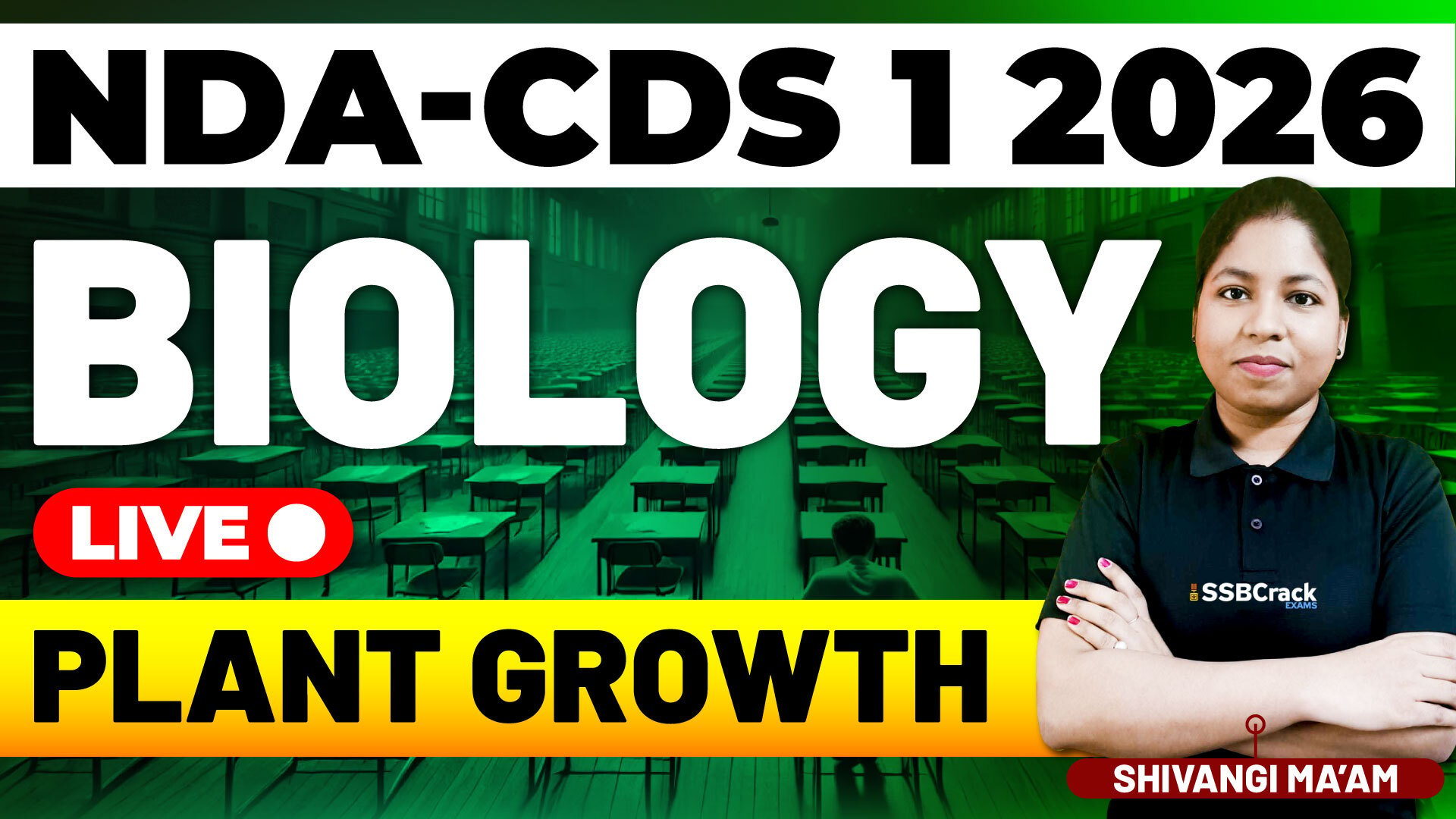The NDA (National Defence Academy) and CDS (Combined Defence Services) Examinations conducted by the Union Public Service Commission (UPSC) assess not only general aptitude but also conceptual clarity in science subjects, especially for candidates with a background in Biology.
In the General Science section, Biology carries a significant weightage, focusing on basic understanding, applied concepts, and examples from daily life.
This class series aims to strengthen the foundation in Plant Biology, a key component of the syllabus, ensuring conceptual clarity for NDA/CDS 1 2026 aspirants.
Main Topics Covered
1. Plant Growth
Overview:
Plant growth is a permanent, irreversible increase in size and mass due to cell division and enlargement.
Subtopics:
- Characteristics and phases of growth (lag, log, and stationary phases)
- Types of growth – determinate and indeterminate
- Growth rate and measurement
- Factors affecting plant growth – internal (hormones) and external (light, temperature, water)
- Plant growth regulators: Auxins, Gibberellins, Cytokinins, Ethylene, and Abscisic Acid
2. Plant Tissues
Overview:
Plant tissues form the structural and functional framework of plants, specialized for support, transport, and photosynthesis.
Subtopics:
- Meristematic tissues: Apical, Intercalary, and Lateral meristems
- Permanent tissues:
- Simple (Parenchyma, Collenchyma, Sclerenchyma)
- Complex (Xylem and Phloem)
- Functions and locations of different tissues
- Tissue systems – Epidermal, Ground, and Vascular systems
3. Ecology
Overview:
Ecology deals with interactions among organisms and between organisms and their environment.
Subtopics:
- Levels of organization – species, population, community, ecosystem
- Ecosystem structure and function
- Food chains, food webs, and ecological pyramids
- Biogeochemical cycles – water, carbon, nitrogen
- Ecological balance and conservation
4. Plant Reproduction
Overview:
Reproduction in plants ensures continuity of species and genetic diversity.
Subtopics:
- Modes of reproduction – asexual and sexual
- Structure of flower and functions of parts
- Pollination and fertilization
- Formation of fruit and seed
- Germination of seed and factors affecting it
5. Plant Physiology
Overview:
Plant physiology explains how plants function — from nutrient absorption to photosynthesis and respiration.
Subtopics:
- Photosynthesis – process, light and dark reactions, importance
- Respiration – aerobic and anaerobic, energy release
- Transpiration and water transport (xylem and cohesion-tension theory)
- Translocation of food (phloem transport)
- Mineral nutrition and deficiency symptoms
Conclusion
Understanding Plant Biology is essential not only for scoring well in the NDA/CDS 1 2026 Examination but also for developing a scientific outlook toward life processes in nature.
This module will help aspirants connect theoretical knowledge with practical examples, improving both retention and application skills.
Consistent revision, along with conceptual clarity in Plant Growth, Tissues, Reproduction, Ecology, and Physiology, will ensure a strong foundation in Biology for the NDA/CDS exam.







